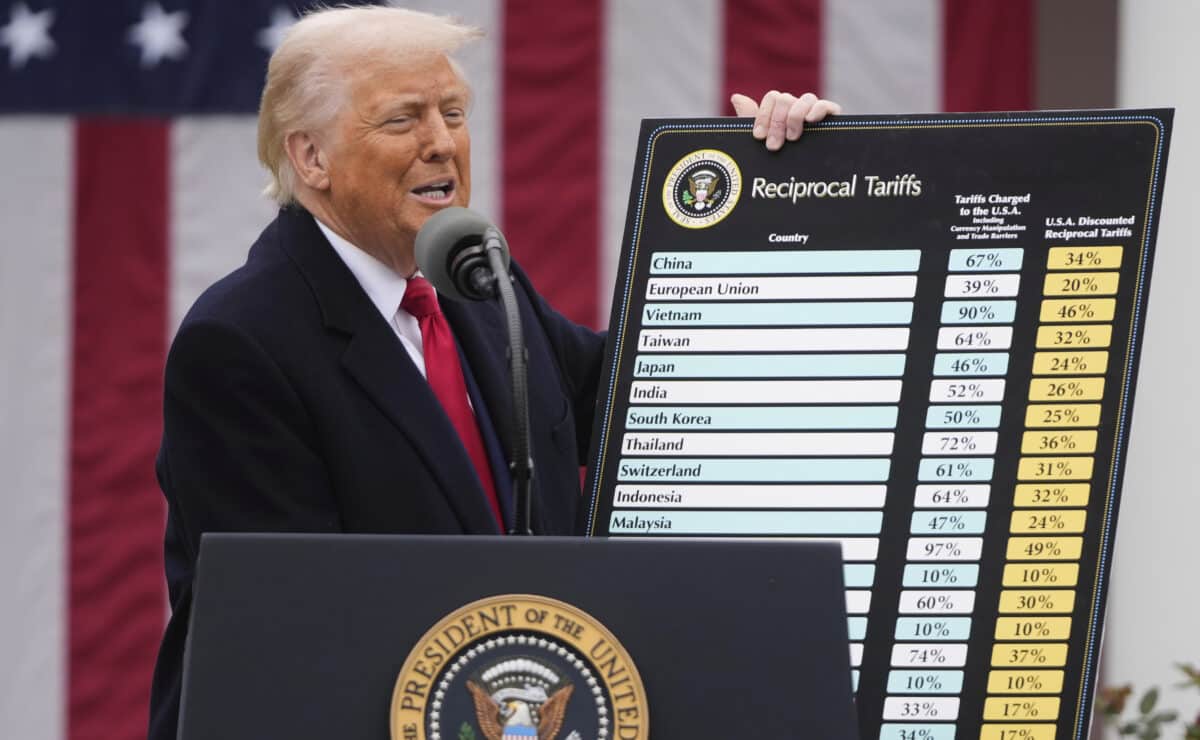US tariffs could push up inflation, slow growth: Fed official

President Donald Trump speaks during an event to announce new tariffs in the Rose Garden at the White House in Washington. (AP Photo/Mark Schiefelbein)
WASHINGTON, United States – The trade uncertainty fueled by recent tariffs will likely raise the risks of higher inflation and slower growth, and pose challenges for Federal Reserve policy, a senior banking official said Thursday.
As the US central bank, the Fed has a dual mandate to tackle inflation and unemployment, and faces the unenviable task of charting a path through the uncertainty thrown up by President Donald Trump’s tariff announcement on Wednesday, which has roiled financial markets.
READ: Trump’s tariffs have launched global trade wars. Here’s a timeline of how we got here
Inflation remains stuck above the Fed’s long-term target of two percent, while growth has been solid and unemployment has hugged close to record lows. Against this backdrop, and the looming threat of additional tariffs, it paused rate cuts in recent months.
Speaking in Pennsylvania on Thursday, Federal Reserve board of governors member Lisa Cook said her baseline forecast still expects growth to slow “moderately” this year, with an uptick in inflation and a stalled inflation fight, “in part because of tariffs and other policy changes.”
While it is possible that the disruption from tariffs could be minimal, Cook said in prepared remarks that she placed “more weight on scenarios where risks are skewed to the upside for inflation and to the downside for growth.”
“Such scenarios, with higher initial inflation and slower growth, could pose challenges for monetary policy,” she added, alluding to the challenges that the Fed would face, seeking to lower inflation without then sparking a spike in the unemployment rate.
Cook said she was also closely monitoring whether a short-term spike in inflation could spark “more widespread” price increases.
“Tariffs on steel and aluminum have already raised prices for those manufacturing inputs,” she said. “As those cost increases work their way through the manufacturing process, they could boost prices of a range of goods over time.”
Using the motor vehicle industry as an example, Cook noted that the combined effect of steel and aluminum tariffs and auto levies could affect the price of new cars, feeding through into higher prices for used vehicles.
“And, as seen in recent years, higher prices for motor vehicles could, with a lag, raise costs for related services, such as rentals, insurance, and car repair,” she said.
“Amid growing uncertainty and risks to both sides of our dual mandate, I believe it will be appropriate to maintain the policy rate at its current level while continuing to vigilantly monitor developments that could change the outlook,” she added.